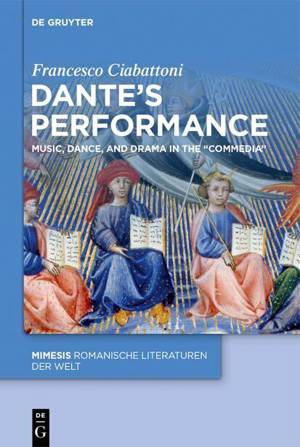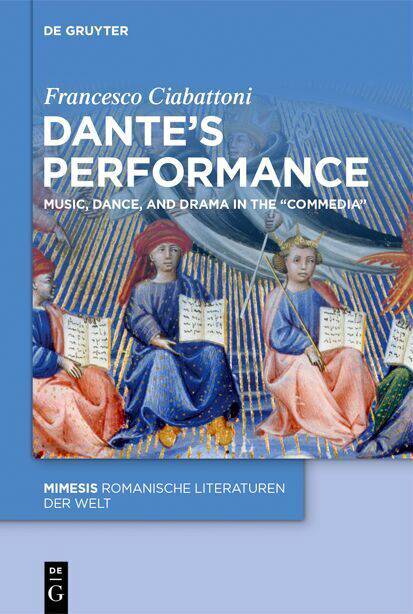
- Retrait gratuit dans votre magasin Club
- 7.000.000 titres dans notre catalogue
- Payer en toute sécurité
- Toujours un magasin près de chez vous
- Retrait gratuit dans votre magasin Club
- 7.000.0000 titres dans notre catalogue
- Payer en toute sécurité
- Toujours un magasin près de chez vous
Description
Through an historical and philological lens, this book explores passages from Dante's Commedia which reveal elements inspired byprocessions, pageants, liturgical drama, psalm singing, or dance performance. The sacred poem finds influence in medieval theories of the performing arts as well as actual performances which Dante would have seen in churches or town squares. Dante's Performance opens a new perspective from which to consider the Commedia: Dante expected his contemporary readers to recognize references to and echoes of psalms, sacred plays, and performative practices. Twenty-first-century readers are tasked with reconstructing a cultural framework which allows us to grasp those same textual references.
From the dramatization of the harrowing of hell in Inferno IX, to Beatrice's celebratory return on top of Mount Purgatory, to the songs of the blessed, this study connects Dante's language to coeval theoretical and practical texts about performance.
If hell is "the Middle Age's theatrum diaboli," purgatory stages a performed purification through songs and acting, while paradise offers the spectacle of blessed spirits within the heavenly spheres as an aid to human understanding (Par. IV 28-39).
Spécifications
Parties prenantes
- Auteur(s) :
- Editeur:
Contenu
- Nombre de pages :
- 282
- Langue:
- Anglais
- Collection :
- Tome:
- n° 116
Caractéristiques
- EAN:
- 9783111405544
- Date de parution :
- 06-08-24
- Format:
- Livre relié
- Format numérique:
- Genaaid
- Dimensions :
- 156 mm x 234 mm
- Poids :
- 576 g

Les avis
Nous publions uniquement les avis qui respectent les conditions requises. Consultez nos conditions pour les avis.






